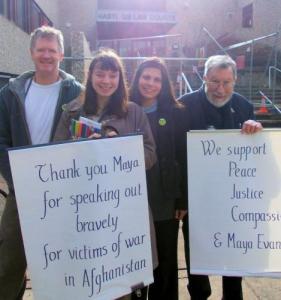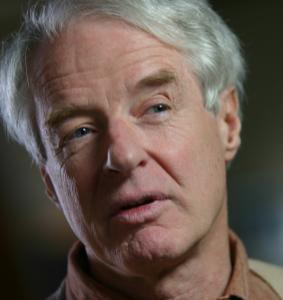The national domestic extremism unit has failed to impose anti-social behaviour orders (ASBOs) on two Catholic peace activists, during a trial arising from a demonstration to mark the anniversary of the Afghan war (see PN 2539).
The application cited 14 times over the past 21 years when Chris Cole had been arrested at protests involving spray paint or bolt-croppers. It sought to ban him from the City of…




